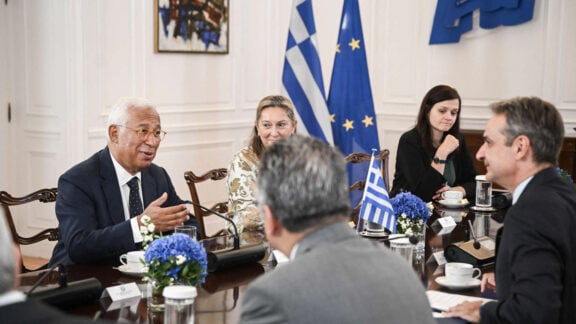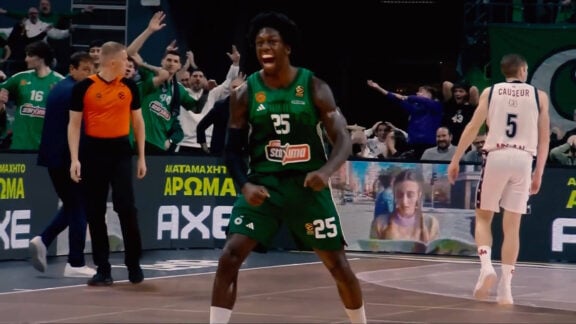A campaign is underway to obtain heritage protection for Melbourne’s iconic Ancient Greece inspired amphitheatre on the banks of the Yarra in Fairfield. It follows on the recent threats to Greek-language teaching at La Trobe University.
Readers will be aware of the Fairfield Amphitheatre from the local Greek community’s involvement in its establishment many years ago as well as it as the impressive location for numerous performances of classical Greek theatre and writing over many years.
The campaign has been sparked by moves by Yarra City Council to re-develop the amphitheatre’s Dressing rooms (also known as the Pavilion) for use by the nearby rowing club. The Dressing Rooms, the Ticket booth and the Amphitheatre – form an integrated whole, the Amphitheatre Complex. With seating for 350 people, the arena complex is in the words of Yarra City Council itself “an impressive venue for outdoor performances”.
In response, Stork Theatre and friends of the amphitheatre have launched a campaign to gain Victorian Heritage protection for the Amphitheatre Complex. The Victorian Heritage Council – the Victorian authority responsible for the granting of heritage protection – will hold its hearing into the issue on 12th October, with a decision to be given within the following month.
Stork Theatre has lodged a submission as part of this process and launched a petition, which so far has gained over 1,700 signatures. Details for the petition are listed below and copies of the submission can be obtained from MS Helen Madden, Stork Theatre Artistic Director and campaign coordinator, contact details below.
Stork Theatre has a special connection to the Amphitheatre. The Amphitheatre’s origins stem from Ms Helen Madden’s idea to bring open-air theatre to Melbourne with a bilingual summer theatre festival. As a result, she was able to develop the Epidavros Summer Festival concept in 1982, working with the then Northcote City Council and members of the local Greek community. The Yarra riverbank at Fairfield was an obvious location for such a theatre.
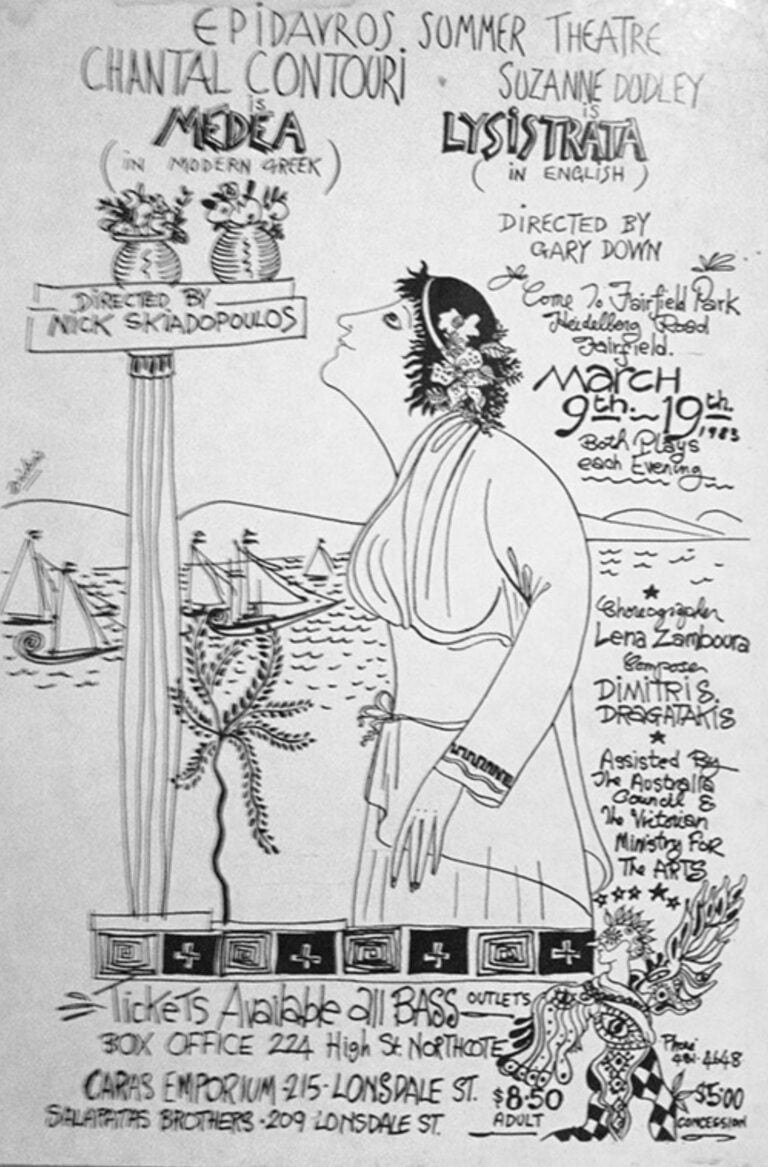
The theatre began as a temporary one, with pop-up scaffolding, for the bilingual festival’s held there in the summers of 1983 and 1984. Each night featured a comedy and a tragedy, one performed in English and the other in Modern Greek. In 1983 Euripides’ Medea was staged in Modern Greek, directed by Nick Skiadopoulos, with Aristophanes’ Lysistrata in English, directed by Garry Down. In 1984, Aristophanes’ comedy Ecclesiasouzi was performed in Modern Greek, directed by Thannassis Papastergiou. The performances mirrored the Ancient Greek practice of staging open-air theatre as popular entertainment.
With Australian Government funding, the Amphitheatre Complex we enjoy today was built in 1985, designed by Edmond & Corrigan Architects, with its bluestones salvaged from the gutters and laneways of Northcote. Former Deputy Prime Minister and local Federal MP, the Hon. Brian Howe, a champion of the theatre, became inaugural Chairman of the Fairfield Amphitheatre board. Since then, the Amphitheatre has seen many performances – from the Playbox Theatre’s performance of Sophocles’ Antigone in 1986 and Attis Theatre’s Euripides’ The Bacchae in 1987, to Stork’s sell-out performance reading from Homer’s Iliad in March 2021, attended by our own Greek Consul-General in Melbourne, Mr Emmanuel Kakavelakis.
Sadly, in advance of the decision of the Heritage Council, the Departmental body responsible for heritage – Heritage Victoria – has unbelievably recommended against protection. Ms Madden pointed out that this decision made no sense, based as it was on erroneous comparisons with music venues and a failure to account for the significance of the site.
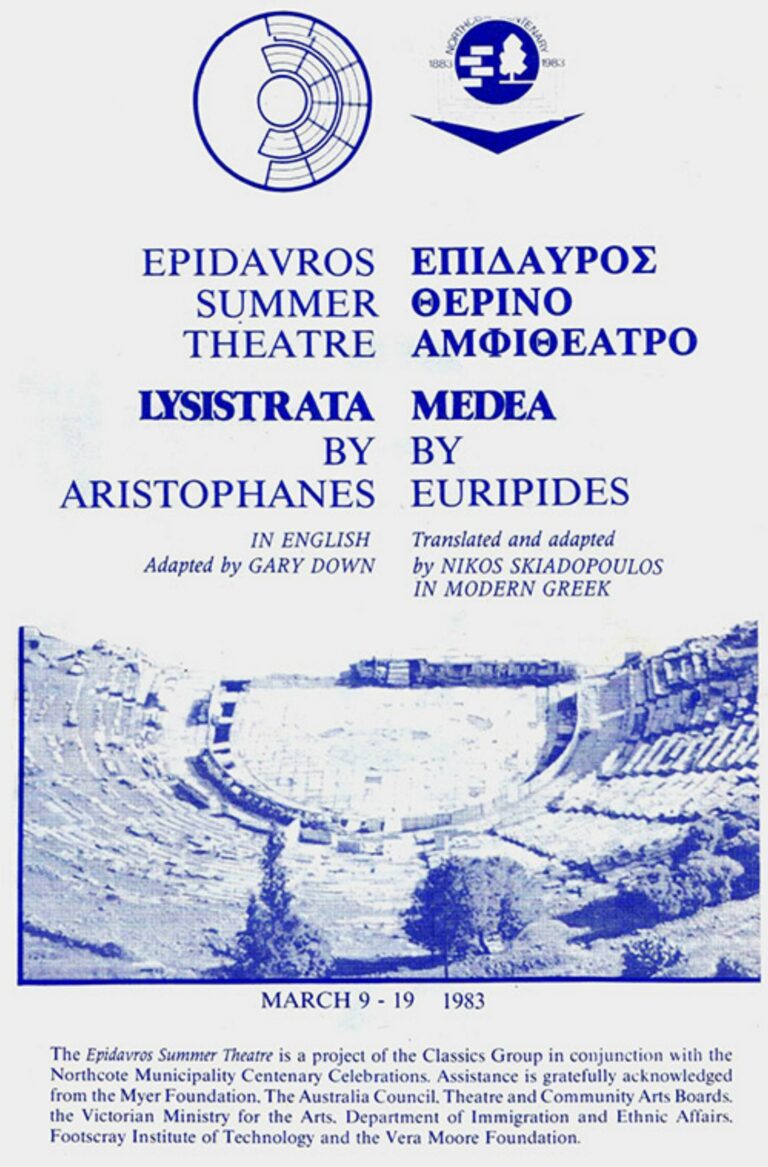
“The only real comparison with Fairfield’s Amphitheatre is WA’s Quarry Amphitheatre, which was granted heritage protection in 2019. Isn’t our precious Amphitheatre also worthy of state-level protection? Unbelievably, Fairfield Amphitheatre is the only Ancient Greek style theatre in Victoria, with a remarkable cultural and bilingual history. Despite these factors, Heritage Victoria wrongly describes our Amphitheatre as having only local significance, as ‘merely’ a multicultural venue and of ‘rough’ construction. This is wrong and ignores the significance of our Amphitheatre to Victoria as well as its strong community links”, Ms Madden said.
In launching the campaign to preserve the Amphitheatre Ms Madden added that not only should it be preserved as part of our cultural and architectural heritage, but this could also be an opportunity to realise the original vision of offering it to Victoria’s theatre companies to become their permanent home.
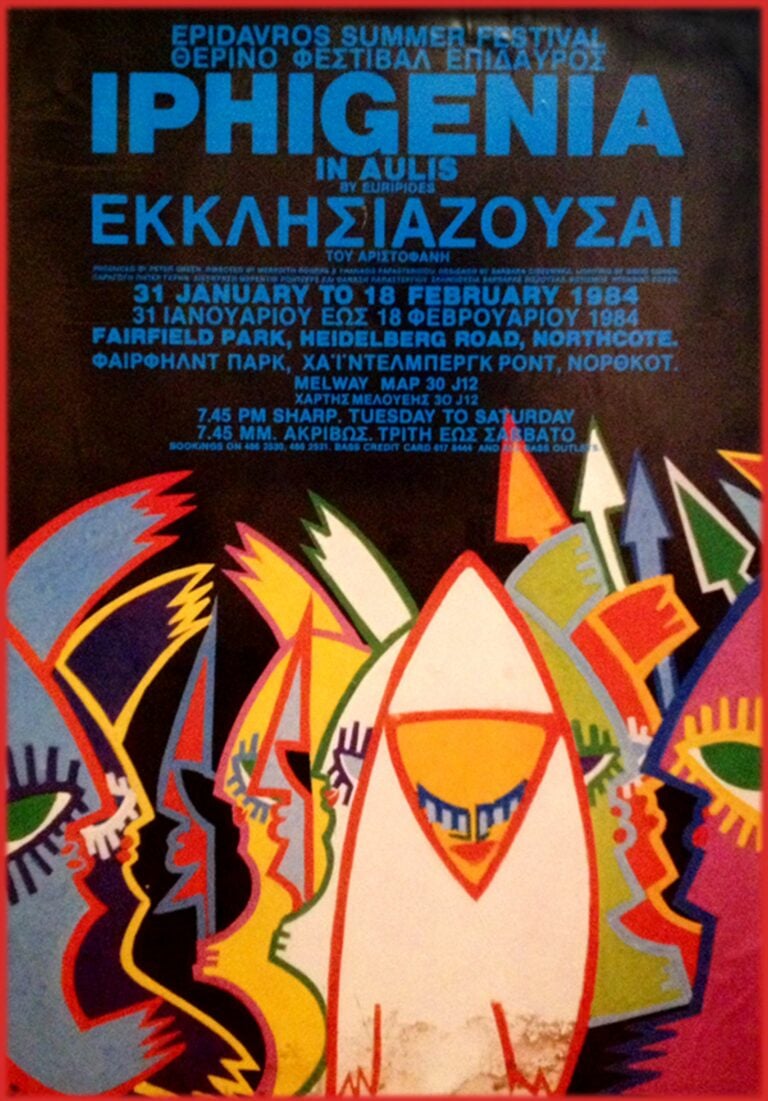
“At a time when our local Arts community is facing enormous stress from the current COVID pandemic, it would be wonderful if the Fairfield Amphitheatre Complex was granted state-level protection and it became a home for local theatre companies, as was originally intended”, she said.
Ms Madden is sending out an urgent appeal for support for the campaign from Melbourne’s Greek community to save the Fairfield Amphitheatre as one of Melbourne and Australia’s theatrical cultural gems.
“Fairfield Amphitheatre is Victoria’s only professional outdoor theatre and it is our only Ancient Greek style theatre. This is remarkable. Like the famed amphitheatre at Epidavros in Greece, it shares that unique acoustic phenomenon whereby a person whispering from the epicentre of the stage can be heard through to the back row”, Ms Madden said.
She urged Melbourne’s Hellenic and Philhellene community to join the campaign. Ms Madden said that she hoped that the Amphitheatre’s location in Melbourne, with its significant and vibrant Hellenic community and their role in helping establish the Amphitheatre, would be another important reason that authorities will take into account in supporting its heritage protection.
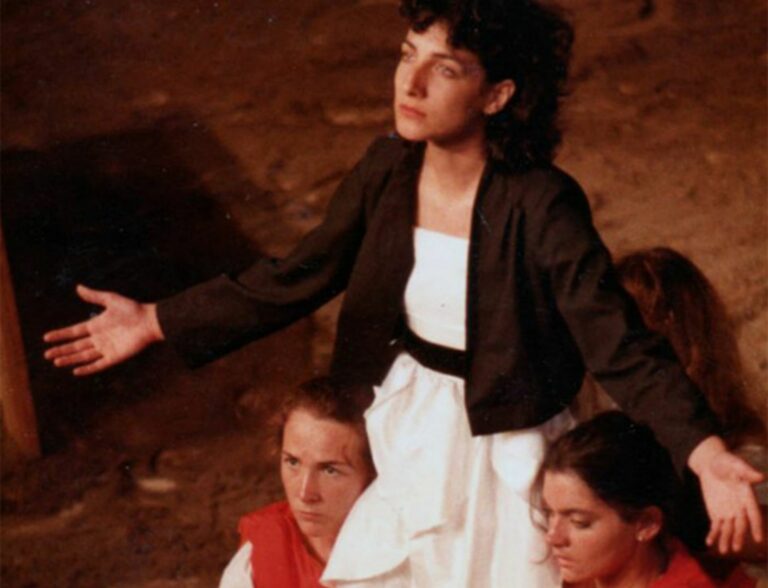
Clearly this is a campaign worthy of the support of Melbourne’s Greek community. It will not only help protect into the future a significant piece of Melbourne’s architectural and theatrical heritage, but it will also protect this important physical reminder of how Melbourne’s Greek community came together with local Philhellenes to create this stunning theatre in the first place. The Amphitheatre is an excellent complement to Melbourne’s successful Antipodes Festival and other Greek community cultural programs.
This year is the 80th anniversary of the Greek campaign of 1941, when Australians and Greeks came together to defend Greece in time of war. Australians and Hellenes are now being urged to come together again in support of another worthy cause to preserve this important local icon celebrating our common cultural heritage.
*This important campaign should also be of interest to all those who joined in the campaign to save Greek language education at La Trobe University. Ms Madden can be contacted via email – hvmadden@optusnet.com.au – or on her mobile 0417 589 987.
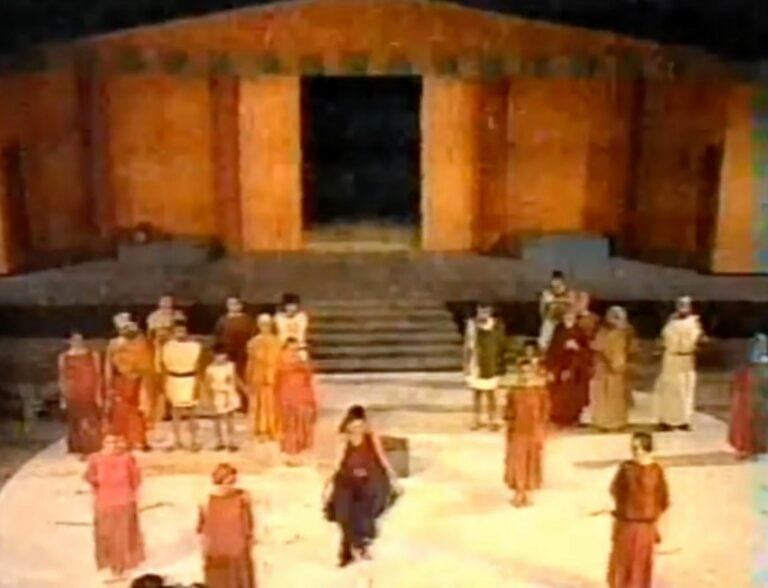
Readers interested in supporting this important campaign can do so by:
- Signing the community petition – https://www.change.org/ProtectFairfieldAmphitheatre
- Contacting the Victorian Minister for Creative Industries, the Hon Danny Pearson MP – email danny.pearson@parliament.vic.gov.au
- Contacting the Victorian Minister for Planning, the Hon Richard Wynne MP – email richard.wynne@parliament.vic.gov.au
- Contacting their local MP (State and Federal); and
- If they are resident in the City of Yarra, contacting their local Yarra City Councillor. Contact details for Yarra Councillors can be found on the following link: https://www.yarracity.vic.gov.au/about-us/council-people/councillors.

*Jim Claven is a trained historian and freelance writer. A former student of Classical studies at Melbourne’s Monash University, he has previously reviewed the Stork Theatre’s performance readings of Homer’s Odyssey and Iliad. He can be contacted at jimclaven@yahoo.com.au.

